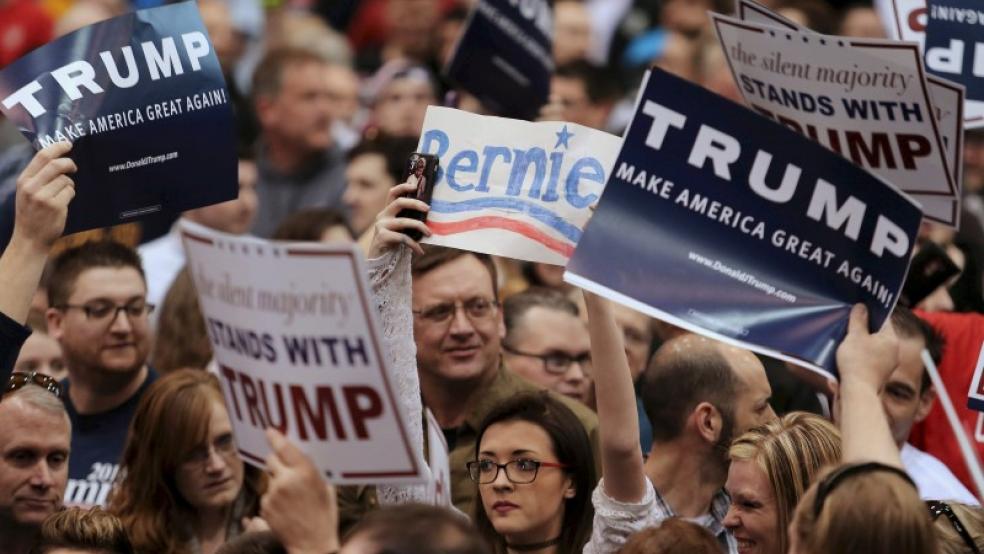Investors currently seem to be ignoring the horse race for the White House, but markets will soon pay rapt attention to the 2016 presidential race, according to one economist.
"Four of the five leading candidates have proposed more regulation, less international free trade or higher taxes," Max Wolff of Manhattan Venture Partners said Tuesday on CNBC's "Trading Nation." And once those regulations are enforced, "a deleterious effect on basic multiples and worry about the market" begins.
Related: Why Presidential Election Years Are Bad for Stocks
Wolff acknowledges that while we have yet to see any market murmurs of panic, he strongly believes it's only a matter of time. Meanwhile, this week the Dow and S&P 500 both closed at their highest levels of 2016 on Tuesday.
"I think you're going to see prices come down. I think you're going to see some pressure on multiples because the bottom line is: less free trade, more regulation, and more taxes, isn't a cocktail [for] this market to go higher," said Wolff, adding a quip: "I'm drinking."
In the Republican ring, Donald Trump is leading the race with 749 of the 1,237 delegates needed for the party's nomination, according to NBC News. And while he's more than 250 delegates ahead of Ted Cruz, some are calling for a brokered convention if the party remains clearly undecided. On the Democratic side, Hillary Clinton has a more than 600 delegate lead over Bernie Sanders, while the Vermont senator is openly fighting the belief that Clinton has the nomination in the bag.
But some believe that when investors are forced to take a closer look at the policies of each candidate, the market could have a markedly negative reaction. Wedbush's director of equity sales trading, Ian Winer, for example, recently told CNBC that he thinks that stocks will fall 50 percent if Trump's economic policies are carried out. Needless to say, others have warned about the potential negative economic impacts of other candidates' policies as well.
Related: The U.S. Economy Has Stalled, Again
But not all market watchers agree that stocks are in for a turn of fate.
Susquehanna Financial Group's head of derivative strategy, Stacey Gilbert, says that it's specific sectors that need to be closely monitored for tremors as the election draws closer, specifically biotech.
"The broader market may not move, but the sectors is where the real volatility has potential," Gilbert said Tuesday on "Trading Nation."
The first taste of sector volatility experienced this cycle spawned from a targeted tweet by Clinton toward big pharma and biotech companies.
Since that tweet, the iShares Nasdaq Biotech ETF, the IBB, has fallen 27 percent, partially on fears that the pharmaceutical and biotech sector could be in for a rude awakening under a Clinton administration.
"That's a sector as we get closer to the election, assuming she wins the nomination and she is on the ticket, that's where I'd look for volatility," said Gilbert. "Sectors that can be directly impacted by somebody's platform," more so than the market as a whole.
This article originally appeared on CNBC. Read more from CNBC:
Forget wives, Cruz, Trump tussle on unbound delegates




